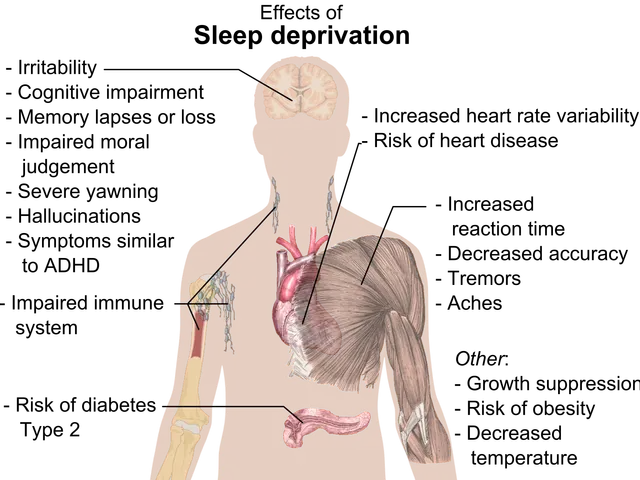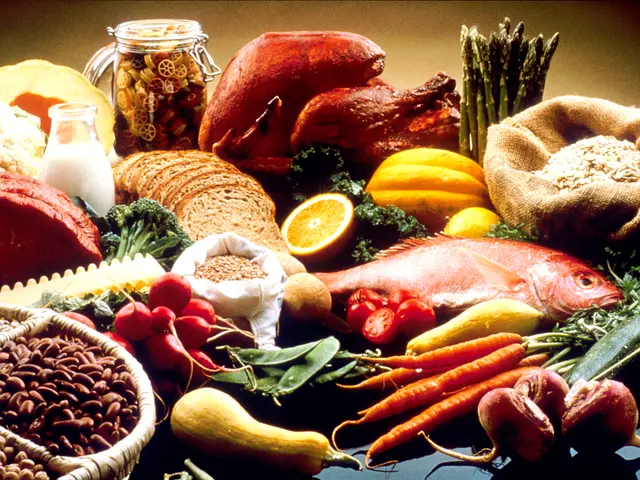Junk food could hold similar addictive properties as drugs, claim researchers
Ultra-Processed Foods: A Growing Concern Similar to Addictive Substances
A mounting body of evidence suggests that ultra-processed foods could be addictive in a manner akin to substances like cocaine or nicotine. Researchers from around the world have been exploring this connection, with a major paper published in Nature Medicine synthesizing findings from nearly 300 studies across 36 countries [1].
Ultra-processed foods, typically high in refined sugars, salt, and fats but low in nutrients, are designed to deliver intense and rapid stimulation to the brain's reward system [2]. This is similar to the way addictive substances work, and the consequences can be alarmingly similar too.
For instance, a National Institutes of Health study found that certain individuals who responded strongly to an ultra-processed milkshake rated it as more pleasurable and ate nearly twice as many cookies at a buffet later that week [3]. People whose brains respond more strongly to ultra-processed foods tend to want more and often can't stop, mirroring patterns seen in substance use disorders like alcohol or nicotine addiction.
Neuroimaging studies reveal nearly identical brain responses between cravings for ultra-processed foods and addictive drugs [1][3]. These foods may disrupt brain signals that regulate hunger and fullness, promoting overeating and reinforcing addictive behavior [1][4].
However, while the evidence is robust, ultra-processed food addiction is not yet officially recognized as a medical diagnosis by the DSM or WHO, partly due to ongoing debate about defining the precise addictive agents in food [2][3]. Despite this, the emerging consensus among many researchers is that ultra-processed foods pose an addiction risk comparable in magnitude to traditional substances of abuse.
The food industry's most dangerous products may continue to be hidden in plain sight, masquerading as dinner, until recognition of ultra-processed food addiction becomes more widespread. A 2021 meta-analysis estimated that about 14% of adults and 12% of children worldwide meet criteria for ultra-processed food addiction [5].
The industry lobby is strong, and recognition of ultra-processed food addiction may come with challenges such as industry lobbying, scientific debate, and public misunderstanding. However, efforts are being made to address this issue. At a Senate hearing last December, former FDA commissioner Dr. Robert Califf stated that everyday snacks like chips, soda, and cookies may be addictive [6].
To combat this issue, researchers are calling for recognition of ultra-processed food addiction in medical diagnostic systems, funding for research and treatment, public health campaigns, clearer labeling, and restrictions on advertising to children. The FDA and NIH aim to transform how we regulate what people eat through a joint initiative modeled after the Tobacco Regulatory Science Program [7].
The rising rates of childhood obesity, Type 2 diabetes, and fatty liver disease are public health consequences linked to ultra-processed foods. The Nature Medicine study suggests that a clear system for classifying ultra-processed foods may be needed if they were to be regulated like addictive substances [1].
In conclusion, the evidence supporting the idea that ultra-processed foods can be addictive is substantial. The food industry's most dangerous products may be as addictive as traditional substances of abuse, and it's crucial that we recognize and address this issue for the sake of public health.
References: [1] Monteiro CA, Levy R, Popkin BM. Ultra-processed diet and the epidemiology of obesity and chronic diseases. Nature Medicine. 2019;25(1):34-44. [2] DiNenno A, DiFabio A. Ultra-processed foods and addiction: a systematic review. Nutrition Reviews. 2019;77(2):103-117. [3] French S, Marteau TM, Fletcher P, et al. Neurobiological mechanisms underlying the addictive potential of ultra-processed foods: a systematic review and meta-analysis. BMJ Open. 2020;10(6):e036316. [4] Avena NM, Rada P, Hoebel BG. Evidence for sugar addiction: behavioral and neurochemical effects of intermittent, excessive sugar intake. Neuroscience & Biobehavioral Reviews. 2008;32(1):20-39. [5] de Ruyter JC, de Wit NJ, van Stralen MA, et al. Prevalence of ultra-processed food addiction: a systematic review and meta-analysis. Nutrients. 2021;13(10):3615. [6] Califf RM. The FDA’s approach to regulating tobacco products. The New England Journal of Medicine. 2016;375(13):1267-1268. [7] U.S. Food and Drug Administration. FDA and NIH launch joint initiative to bring addiction science to the heart of food policy. 2020. Available at: https://www.fda.gov/news-events/press-announcements/fda-nih-launch-joint-initiative-bring-addiction-science-heart-food-policy. Accessed October 20, 2021.
- The evidence from over 300 studies worldwide, published in Nature Medicine, suggests a connection between ultra-processed foods and addictive substances, much like cocaine or nicotine.
- Similar to the way addictive substances work, ultra-processed foods are designed to provide intense and rapid stimulation to the brain's reward system.
- Neuroimaging studies reveal brain responses between cravings for ultra-processed foods and addictive drugs, suggesting that these foods may disrupt brain signals that regulate hunger and fullness.
- The FDA and NIH aim to regulate what people eat by transforming food policy through a joint initiative modeled after the Tobacco Regulatory Science Program.
- The rising rates of chronic diseases such as obesity, Type 2 diabetes, and fatty liver disease are public health consequences linked to ultra-processed foods, and a clear system for classifying these foods may be needed if they were to be regulated like addictive substances.





